What is the maximum number of years you can live with AIDS?
"It takes about 10 years from the time of infection to the onset of the disease, and the mortality rate is 100% within 2 years of the onset of AIDS."--This was the situation when AIDS was first discovered in the 80's, and before effective treatments for AIDS were available, very few people would live beyond 40 if they were infected at age 20. In some African countries, the HIV epidemic has cut life expectancy by more than a decade, as in South Africa, where life expectancy fell from 62 years in the early 1990s to nearly 50 years in 2007, destroying decades of economic and health development.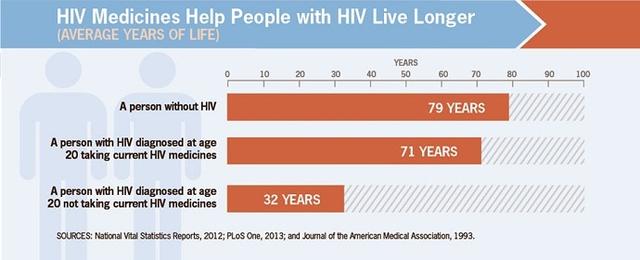

The HIV epidemic has been going on for more than 30 years and has claimed more than 35 million lives. If such a horrific epidemic hadn't been able to galvanize the human race to fight back, then the human race would have been extinct a long time ago. 96 years ago, when Da-Yi He proposed the "Cocktail Therapy", people finally saw a glimmer of hope to break the demon of AIDS, and the trials showed that the "Cocktail Therapy" could significantly reduce the level of the virus in the body of the patients, postpone the onset of disease, and prolong the patients' life expectancy. With the emergence of more and better anti-AIDS drugs, the life expectancy of infected patients is now close to that of normal people, provided that they are properly treated!
"It's over, everything is over ...... ", always do not believe in God and Buddha himself, but at this time desperately begging to the heavens, "Bodhisattva, Buddha, God ah! Please give me a little more time, as long as I can give my mom and dad old age, I am willing to give anything! 20 more years, no, 10 more years!" This is what an infected person described to me when he was first diagnosed. Everyone is afraid of death and wants to live a long life, and so do the patients. But interestingly, when I told the infected person, "Don't be afraid, you can live to (close to) normal life expectancy even if you are infected," the person would always look skeptical and ask me this question - "How long has HIV been prevalent, and how can you say that infected people can live to be 70 years old"? If I were to find someone who was infected at 20 years old and has now lived to be 6 or 70 years old, no one could do it, but scientifically calculating and predicting the average life expectancy of a group of people can be done.
If we want to know how long a certain group of people will live, the most direct and accurate way is to count their lifespans and average them after all of them have died, but we would have to wait for decades to obtain such a data, and it would be of limited value for the following generations, because by that time, health and medical conditions may have changed significantly, and the average lifespan of the population may be significantly lengthened due to emerging treatments or significantly shortened due to certain The average life expectancy of a population may be significantly longer due to emerging treatments or significantly shorter due to some catastrophic event, so we need a prediction that allows people to know the general outcome of an event (e.g., birth, illness) with a relatively high degree of accuracy at the time of the event, which is known as life expectancy. The most important factor affecting life expectancy isMortality.Generally speaking, the mortality rate of adults increases with age, and if the mortality rate of the lower age groups is too high, the life expectancy will decrease accordingly. By counting the mortality rates of a population at different ages, we can further calculate the life expectancy of the population under the assumption that the mortality rate of each age group remains stable, and the specific algorithm can be found in Baidu.
It is foreseeable that if the mortality rate of infected persons of all ages decreases significantly, the life expectancy of infected persons will naturally continue to rise. So what is the actual situation? Let's take a look at the data from the CDC.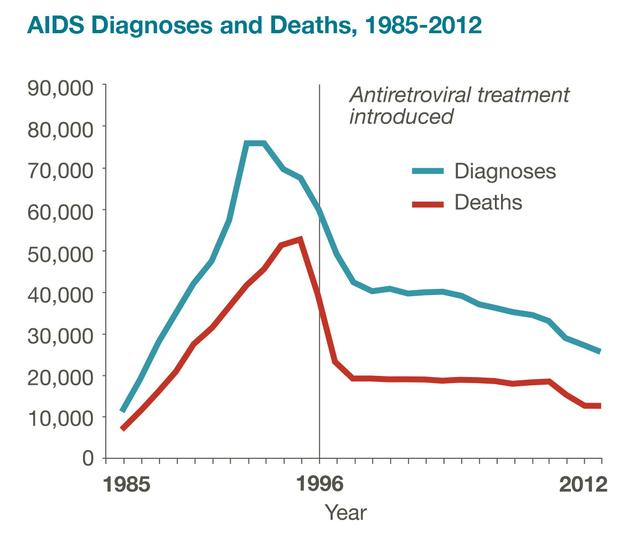
The vertical line in the chart above represents the time when cocktail therapy (highly active antiretroviral therapy including protease inhibitors, HARRT) began to be used in the clinic. Since then, the number of people diagnosed with and dying from AIDS in the United States has declined rapidly, with deaths from HIV/AIDS declining by nearly 50% in 1997, then by 20% in 1998, and the number of deaths per year in the United States declining rapidly from over 51,000 in 1995 to less than 16,000 in 2002. As new anti-AIDS drugs continue to become available and treatment becomes more widely available, mortality rates for HIV-infected patients in developed countries continue to decline and life expectancy rises even further. research published in 2013 in the journal PLOS ONE showed that in North America, if patients had been infected with HIV in their 20s, they would have lived an additional 36.1 years at the 2000-2002 mortality level, and by In 2006-2007, they could have lived 51.4 years longer! The average life expectancy for men in the US in '09 was around 77 years, so is the difference between 71 and 77 years a big one? What's more, the trend of declining mortality and rising life expectancy among infected people is set to continue.
The results of such studies have been recognized by a number of official bodies, and in 2013 the World Health Organization released its annual HIV treatment report, which showed that as antiretroviral treatment became more widely available, AIDS-related deaths declined dramatically globally, and life expectancy for those infected rose significantly, approaching that of the normal population if treated early in the course of the disease, even in low- and middle-income countries. The impact of HIV on life expectancy has been significant. Returning to the South African example mentioned at the outset, the difference in life expectancy between people living with HIV and the normal population narrows to 20% for those who receive treatment early. As shown in the figure below, life expectancy in South Africa has climbed again from 54 years in 2005 to around 60 years in 2011.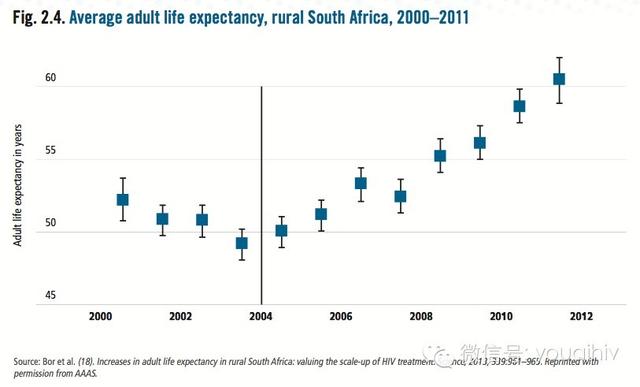
What is the situation of infected people in China?
Although no specific studies have been reported on the life expectancy of infected people in China, the mortality rate of HIV-infected people in China has been declining year by year as antiretroviral treatment gradually began to spread nationwide around '03.
As can be seen from the graph above, the mortality rate of HIV-infected people in China declined by about 78% in 2011 compared to 2002, against the backdrop of an increase in HIV treatment coverage from 0 to 63%. Even so, the mortality rate is still high compared to other countries, mainly because too many infected people are not detected until the disease is in an advanced stage. For those domestic infected patients who are detected in time, treated early and have good adherence to treatment, the efficacy of viral suppression and immunity restoration is comparable to the international level even if they are taking domestic drugs, so they can expect to live to (close to) the normal life expectancy of the national population.
What are the requirements to live to a normal level?
Although the situation is optimistic, there are still certain conditions that need to be met in order for an infected person to live to a normal level, at least two:
Try to receive treatment before the immunity is destroyed (CD4 cell>350/ul), which simply means "early detection, early treatment". Of course, this does not mean that there is no treatment for patients with advanced AIDS, there are many patients who are found to have single-digit CD4, but after controlling complications and actively treating for a period of time, the CD4 can still be significantly improved, and there are even some who have 400 or 500 cells. Only may be more difficult, need to analyze specific problems.
Take your medication well and stay on it for life, consistently keeping your body's viral load below detectable levels
As the life expectancy of infected people increases, many problems will follow. For example, although the difference between infected people and ordinary people in terms of the length of life is getting smaller and smaller, the gap in the quality of life still exists, and infected people have a higher risk of various chronic diseases such as coronary heart disease, hypertension, diabetes and certain tumors, and the age of onset of disease is about 10 years earlier than that of ordinary people. Under the current conditions of antiretroviral treatment, the causes of early death of HIV-infected people are no longer the original opportunistic infections or AIDS-related tumors, but precisely some non-HIV-related health problems. In order to live longer, infected people should pay more attention to the prevention of these old age and chronic diseases!
Realistically speaking, the current treatment conditions have made it possible to say goodbye to the era of "terminal illness", and it is no longer a luxury for infected people to live to the level of normal people. However, under such a favorable treatment situation, nearly half of the infected people in China still do not know their own physical condition, and are afraid to go for checkups until it is too late to find out. There are also many infected people who are in deep despair as soon as they find out they are infected, and choose to end their lives voluntarily when they are depressed. In developed countries, the other extreme is that, because of the effectiveness of the treatment, the public's vigilance against HIV has dropped, always thinking that "if you are infected, the big deal is to take medication", so they relax the protection of their own safety and the safety of others, resulting in the rise of the rate of new HIV infections again.
All of the above warns us that there is still a long way to go in the fight against AIDS in our country, and we must not take it lightly!
"The above is reprinted from Knowledge."
I am a professional staff engaged in the prevention and treatment of AIDS, if you have AIDS, first of all, the impact on your life expectancy is not great, for example, the normal life expectancy of 70 years old, then you can live to 65 years old, but the prerequisite is that you have to take antiretroviral medication on a regular basis, and you can not stop halfway through the process, and secondly, the CDC will be free of charge every year to test the value of the CD4T lymphocytes of the patients with AIDS, so it is not necessary to worry about the cost too much. AIDS treatment is now very mature, and there are many research results on drugs for AIDS treatment now, and the AIDS vaccine has begun to show results!
First, let's start with a brief introduction to AIDS. AIDS is caused by the HIV virus, which infects our immune cells and causes the body to lose its immunity. When the body loses its immunity, a small cold can develop into pneumonia, which can then take the life of an AIDS patient. Therefore, AIDS is a very dangerous infectious disease.
Our bodies may not develop the disease immediately after being infected with HIV.HIV-infected people go through an incubation period of several years, or even up to 10 years or more, before they develop AIDS., and of course there are some people who may have this stage for only a few months. Here we want to emphasize that people with HIV are infectious even if they don't develop symptoms. Many people do not even realize they have HIV until they develop symptoms.
So how long can you live with AIDS? Actually, the exact term should be how long can you actually live after the onset of AIDS? With the advent of cocktail therapyThe life expectancy of today's infected people can reach near-normal levels.. And it's already rare for an AIDS patient to end up dying from an HIV outbreak or an associated malignancy. Medicine is still evolving and this life expectancy may even increase. So don't really be hopeless about life if you are unfortunate enough to be infected with HIV.
Since the cocktail therapy can significantly reduce the level of virus in the patient's body, delay the onset of the disease and prolong the patient's life. So, is it true that the treatment is so expensive that the average person cannot afford it?A negative test result six weeks after you engaged in high-risk behavior rules it out. If the test is positive, go to the CDC for further confirmatory testing. If the diagnosis is confirmed, you can register with the CDC to receive aFree antiviral medicationThe. So, this disease treatment is free and will not add to your financial burden.
So since the treatment is free and life expectancy is average, is it that people with AIDS have nothing to worry about? Can they just go ahead and engage in some high-risk behaviors? In fact, not, although the above content to a certain extent to alleviate the concern, but the disease and not the disease there is still a fundamental difference, from the quality of life, at least at this stage, AIDS patients are still more likely than the healthy population to get high blood pressure, hypertension, high blood sugar, colds, pneumonia and other diseases, it is now far from the time to take this disease lightly.
In addition, there are some people who refuse HIV testing with the mindset that it is better to know than not to know, and that they can live a little more stress-free without being tested and not knowing. This mentality is also undesirable. It is important to realize that the spread of HIV infection is a process, the earlier you know, the earlier the treatment, the higher the survival period and the quality of survival. To give an inappropriate example, treating pre-cancerous disease and treating advanced cancer, that is definitely not the same. That is why early detection and treatment is important.
谢邀.
To clarify the concept, if the person is not tested or is in the window period, there is no way to determine if they are infected with HIV, and life expectancy at that point is not part of the discussion.
There is also the concept of the HIV incubation period, which can be as long as 2-10 years, or even longer, depending on the combination, and there is no definitive medical answer to this, but from current medical data, once an HIV patient is untreated and passes the incubation period, the illness and death occurs very quickly because the body's immune system has been severely damaged and the number of disease loads is very high. And death is usually due to the onset of the disease.
For what it's worth, how long can you live with the infection? The premise is that one already knows through testing that one is infected with HIV, past the window period. There are three scenarios for this question.
First, the treatment is effective, compliance is good, the medication is taken on time, the physical examination is on time, there is no drug resistance, the CD4 in the body is maintained at a stable level, and the disease load is below the detectable range, and the life expectancy in this case is approximately equal to that of a normal person. How long can I live? No doctor can guarantee how long one can live. Does the patient die of natural causes or other complications? There is no way to be specific about this, and there seems to be no standardized data or examples to illustrate this. But the point is to treat it well, HIV has been defined as a chronic disease. As technology advances there may be a day when it is curable.
Secondly, treatment failure, poor compliance, emergence of drug resistance, CD4 instability, unstable number of disease carriers, this situation can also be achieved after changing drugs to control the role. However, the survival process will definitely have more or less complications, affecting the body's immune situation and shortening the life span, the exact value of which is unknown and depends on the individual situation.
Thirdly, if there is no treatment at all, acute symptoms of infection and if the infection is left untreated after the complications of the infection have been treated, then the life cycle is about 2-5 years, but it also depends on the ensemble.
In summary, regardless of whether or not it is the case, taking your medication on time, getting tested on time, and improving adherence is a crucial thing for HIV.
In addition, it must be noted that TCM plays an adjunctive therapeutic role to HIV, not a curative role. Chinese medicine can increase immunity and reduce drug side effects to a certain extent, but it will never appear to inhibit the virus. At least at present, there is no hospital or pharmaceutical company or organization that can use Chinese medicine to inhibit the replication of the HIV virus in the body for the purpose of cocktail therapy.
One more thing, there is indeed one case in the world that is generally recognized by the medical community as a cure for HIV, but this is only one case, and it is the only case in the history of HIV over the years, so don't go into this corner. How this person was cured is available on Baidu.
Another point is that current research is limited to scientific studies and has not been implemented into clinical treatment, but this revelation is an indication that technological developments and medical advances are hopeful for HIV.
Above. Thank you.
There is an underlying panic in almost everyone who mentions AIDS.
The first reaction of people who have just learned that they have AIDS is also"It's over. My life is completely over."。
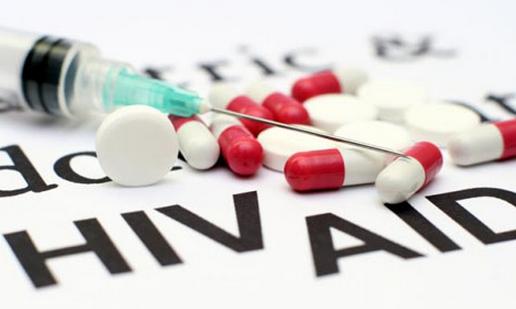
But is it really hopeless to have AIDS? Big mistake!!!
Let's start with the last set of data from the International Statistical Report on Diseases.
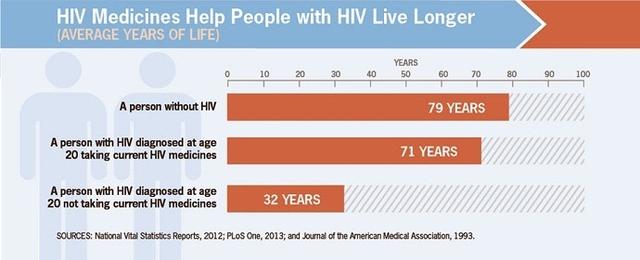
Let's look at the first line of data first.A healthy, normal person lives an average of 79 years.。
And the data in the bottom row is thatA person infected with HIV at the age of 20 will live on average until the age of 32, which is just 12 years.
But look back to the center., a patient infected with HIV at the age of 20 who takes anti-HIV medication correctly can live to an average of 71 years of age, only eight years less than a normal person's 79 years.

While an AIDS vaccine is still out of reach, theAIDS patients have been able to live life spans comparable to those of normal people.。
With the advancement of medical technology, this gap between AIDS patients and normal people will continue to narrow in the future.
And it all depends onChinese scientist Da-Yi Ho的"Cocktail therapy."。

Photo: Daichi Ho in Time Magazine
One of the major reasons why AIDS is so difficult to treat is that the HIV virus changes so rapidly.
The short replication cycle of HIV and the lack of an "error correction" mechanism when their genetic material is reverse transcribed into DNA make HIV viruses highly susceptible to mutation.
Once the mutation happens to make the virus resistant to a drug, the drug is simply rendered ineffective.
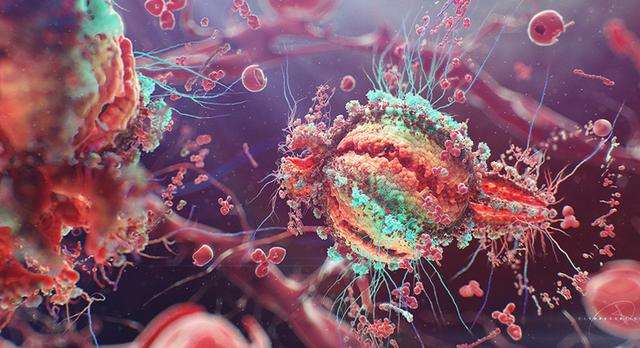
Several so-called potent drugs that were born in the early years were once seen as the savior of AIDS sufferers.
However, it was soon proven that it only suppresses the virus extremely briefly and does not eradicate the stashed virus.
neverthelessIn 1996, the cocktail therapy invented by Da-Yi He changed all that.

Pictured: colorful cocktails
Cocktail therapy doesn't mean drinking a cocktail, but rather, like mixing a cocktail, mixing the3 or more antiviral drugs in combination.
Each drug targets a different part of the HIV reproductive cycle, resulting in the suppression or inactivation of HIV.
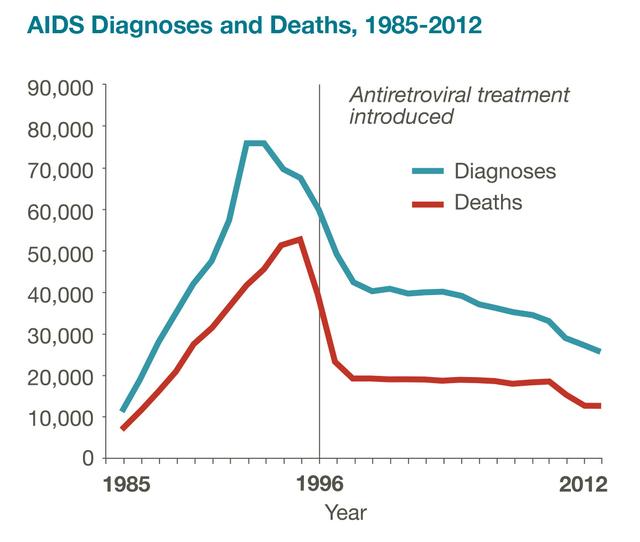
The vertical line in the figure above isThe time when cocktail therapy began to be used in clinical practice(1996), it can be seen that the number of AIDS deaths has declined rapidly since then.
Moreover, since 1998, China has also begun to implement this "cocktail therapy" for AIDS, and the mortality rate of HIV-infected patients has been gradually decreasing.
In the beginning, when the cocktail therapy first appeared, there were also concerns that the high cost of its medicine ($10,000 a month) would make it unaffordable for many people.
But our country has also been promoting reduced-cost treatment for AIDS since 2002.
By now, HIV antiretroviral drugs are completely free in the country.
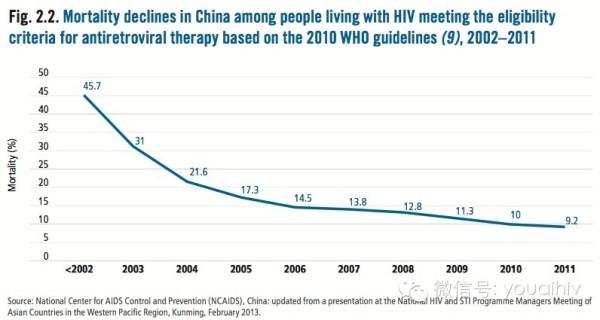 Figure: AIDS deaths in China have been declining from 2002 to 2011
Figure: AIDS deaths in China have been declining from 2002 to 2011
So it's pretty clear to say that the current healthcare situationAIDS is no longer an "incurable" disease.
This is because with active management, infected people are perfectly capable of living to near normal levels.
So the AIDS patients who searched for this answer, please make sure to be active in the treatment not to give up.AIDS drugs and vaccines we'll leave in the hands of scientists with confidence.
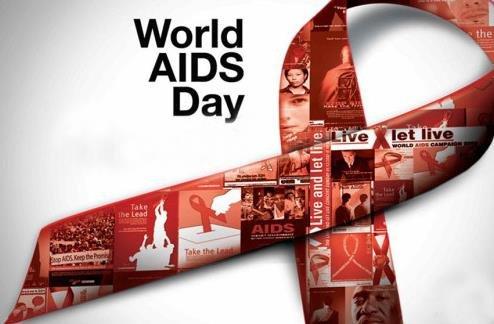
But AIDS is a disease inThe psychological torture can be far greater than the condition itself。
That's why having a fuller understanding and a healthy mindset about HIV is more important than anything else.
AIDS is a chronic disease.
HIV invasion of the human body mainly destroys the body's immune system, so that the resistance of people gradually decline, a variety of disease viruses continue to take advantage of the situation, triggering a variety of diseases and thus the emergence of clinical symptoms.In the natural state, this process takes an average of 5-10 years, a period known medically as the "incubation period".
In 2003, we started antiretroviral treatment for AIDS.Treatment can prolong the "incubation period" and delay the onset of the disease.
Therefore, once you know that you are infected with HIV, you should go to your local HIV treatment designated hospital as soon as possible for counseling and early treatment.
It is worth noting that because of the long "incubation period" of AIDS, most people infected with HIV are unaware of their infection status and are only detected when they go to the hospital with clinical symptoms.
Caught late, it affects the effectiveness of HIV antiretroviral treatment and the quality of one's life.
Therefore, early testing and treatment is advocated for those at risk of HIV infection.
Q&A with Hunan Medical Chat by Biyun Qin, Hunan Center for Disease Control and Prevention
If the infection is not treated, the average is 6 to 8 years. This is actually not a good question to answer or give the more accurate answer that the patient wants in his or her mind. Why? Please listen to my own opinion. First of all, if the patient wants an answer, he/she wants to estimate his/her life expectancy from the average value. I don't think this is very meaningful. For example, Ma Yun's wealth with you to calculate the average, you and a beggar on the side of the road to calculate the average value of the wealth of meaning. hiv patients infected with different ages, a 20-year-old infected with 60-year-old infected, infected with autoimmune ability on the gap is very large. There is also the discovery time, most of the patients in China, especially because of hiv died in the discovery of patients have been very late (most of the cd4 are less than 100 or even a single digit and has been complicated by a variety of opportunistic infections). Then there is the difference in adherence.
If detected early and confirmed with a high level of adherence to regular medication and regular testing of health status, it is possible to survive for a long time without affecting the quality of life.
Nowadays, patients who have been taking medication for 10 years or so are considered to have survived for a longer period of time, not that the disease can only be lived for 10 years or so. Rather, it is because more than ten years ago the state did not provide free drugs, even ten years ago to receive drugs are not as good as today, not now confirmed that you can immediately receive drugs. In the past, there were fewer drugs to choose from, and once a patient developed drug resistance, it would be very dangerous. However, now that new drugs are constantly being introduced, the problem of drug resistance has been solved, and long-term drugs are entering the clinical stage, so I believe that a functional cure can be achieved in the near future. In addition, there is another issue that we are very concerned about is the immune rebuilding problem when cd4 is very low, not long ago Dr. Li Taisheng also announced that their research team has been developing this kind of immune rebuilding drugs.
As a hiv infected person. Standing in the angle of patients to remind you. If there has been high-risk behavior suspected of infection please first time to go to the CDC test, if confirmed please active treatment, take medication on time, adjust the mentality. You can live a normal life and work normally. It's not that the sky is falling if you're infected with hiv, let alone waiting to die. The life expectancy of a person infected with hiv after infection is not so much five years and ten years, but twenty years thirty years or even fifty years.
Thank you for the invitation:
Fourteen years ago I lived in a local and municipal infectious disease hospital, which had several inpatient units, I lived in the pulmonary unit that year, and I had been to the AIDS inpatient unit, with a fellow patient.
There live more than 30 patients there, mainly targeting young and middle-aged men and women. He/they once said to both of us: We are all sentenced to six years of imprisonment, and some of us have already passed away, you are so bold that you dare to come here without being afraid of feeling the beams?
We later asked our doctor about it, and back then he said the same thing: it was really only about 6 years from infection to going to the end of life.
With the development of medical science and technology, a lot of drugs and injections have been developed for the treatment of AIDS, effectively suppressing the control of the development of the virus, and there are many patients who have lived more than 10 years by taking injections and medicines.
Although the current world medical science and technology is advanced, as far as I know there is no drug that can completely eradicate this virus in the most effective way.
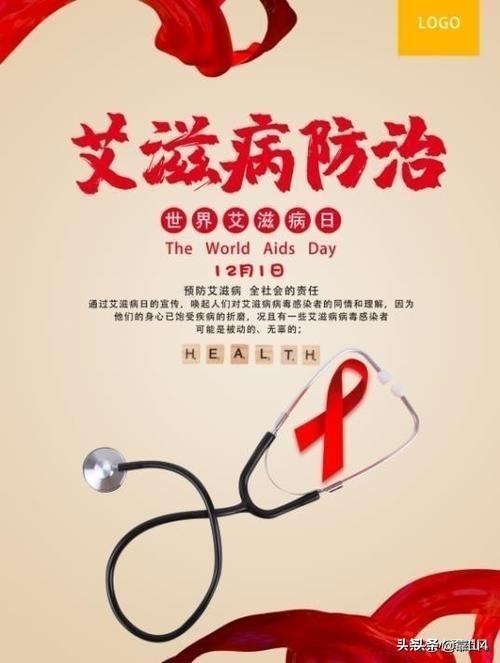


How many years can you live with AIDS is probably one of the biggest concerns of any person living with HIV or AIDS after being diagnosed. I believe that the number of years you can live with AIDS is due to the following factors.
1. Timing of discovery. If you are found to be infected with HIV in the acute stage or early latent stage, you can receive antiretroviral therapy early, enhance your own immunity, follow the doctor's instructions, take the medication on time, and monitor drug resistance and immunity in a timely manner, then the expected life expectancy can be the same as that of a normal person; if you are confirmed in the stage of AIDS, at this time your immune system has already collapsed or is close to the verge of collapsing. At this point, symptomatic supportive treatment plus prevention of opportunistic infections is often the mainstay, and antiretroviral treatment can only be given after stabilization, but the treatment outcome is much less effective than that of patients who are detected and treated early, and ultimately the life expectancy is much shorter.
2. Personal mentality and emotions. This can also be said to directly affect the effect of treatment, some people can accept calmly, and actively accept the standardized treatment, the effect is good; some people can not accept, mood changes, which will further weaken the already damaged immune function, the disease progresses much faster, and naturally can not get the desired value of life.
3. Family care. Family care plays a vital role in the survival and quality assurance of life of people living with HIV or AIDS. We can't change the discrimination of people around us against people living with HIV or AIDS, but as relatives we can't discriminate, not to mention abandonment, which will make them lose the pursuit of life, lose the courage to live, and accelerate their self-abandonment.
In short, if you have AIDS, you should actively cooperate with the doctor to treat, regulate your own behavior, and fight for the support and care of your family, your life is also wonderful!
1. The spirit is crushed first, and the conscientious patient will not marry a normal person, let alone have an offspring. Unconscionable patients will aim to hold the restoration, and the word will spread.
2. Although normal life will not easily infect others, but deep down will slowly favor loneliness, cultivation of high will enter the alternative spiritual world, the ordinary people of the mundane life and way of life is no longer suitable for them.
3. The pressure of life may cause some patients to go to extremes, hoping to end everything in advance, so that they will unconsciously commit drugs, and even crimes that are mainly harmful to society.
4. Although the Government and the media are constantly publicizing free medicines, etc., there is almost nothing that can be done for the patients in the later stages of their illnesses, and all kinds of morbidities and incapacities are seriously dismantling this group of people's bodies and spirits.
5. As for how many years can you live? In China, there was a man named Meng X who lived 15 years, and (of course, on the basis of very good economic conditions) the media often reported that he had a strong life force. There are even media reports of people who live up to 70 years without medical treatment or medication, so what's the difference between that and reports of regular people living up to 150 years old.
6. The patient's illness may be accidental in the accident, the state in the policy to do a good job in this area to help patients, reduce the patient's hatred of society and retaliation, so that all of mankind are good.
7. A patient who had to lose his family, how happy he would be! Like the walking dead, roadside weeds, situation of long-term illnesses, most patients will be worse than death, people do not fear death when the country and society how to treat? Gratitude, patients must be grateful to society, feel the good of society.
This question and answer are from the site users, does not represent the position of the site, such as infringement, please contact the administrator to delete.